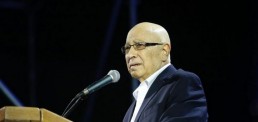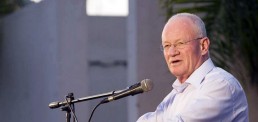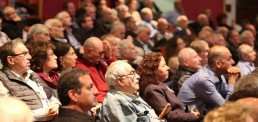Eshki to Netanyahu: “Say Yes to the Saudi Peace Initiative”
If Israel accepts the peace plan and undertakes to implement it, 22Arab states and another 20 Muslim states will undertake to have normal relations with you, You need to accept that we want coexistence between the Arab countries and Israel
Yedioth Ahronoth (p. 10) by Smadar Peri
Thirteen years after the Saudipeace initiative was first introduced, there are evidently still many important figures in the Arab world who wish to revive it, “Now thatPrime Minister Netanyahu has formed his new government, I am calling on him: Say yes to the Saudi peace initiative. It is valid and exists and has not disappeared with the change of the regime in Saudi Arabia,” said Dr. Anwar Eshki, a prominent Saudi figure. “King Salman and his senior advisers support it. The time has come for Israel to accept it as well. There is no other peace plan.”
Eshki, aged 72, who served as a general in the Saudi army and hasfilled a series of other key positions in the Saudi government in Riyadh , is currently the chairman of the Middle East Center for Strategic and Legal Studies in Jeddah. He is considered to have very close relations with the royal house. Eshki had no qualms about being interviewed by anIsraeli newspaper, and said: “The issue is important, and a message needs to be conveyed to Netanyahu, to the cabinet ministers and to theIsraeli public that there is a peace plan that is waiting for their approval.”
“If Israel accepts the peace plan and undertakes to implement it, 22Arab states and another 20 Muslim states will undertake to have normal relations with you,” said Eshki in an exclusive interview that he gave toYedioth Ahronoth at the Doha Forum that was convened this week inQatar. “You need to accept that we want coexistence between the Arab countries and Israel.” He also had a message for the skeptics, who do not believe in his vision: “Saudi always keeps the commitments it makes, and you will see, when the time for normalization arrives, we will establish diplomatic relations with Israel along with 22 Arab states as well as commercial cooperation and cultural ties.”
The Saudi peace initiative, which was articulated by King Abdullah in 2002 (while he was still the crown prince), stipulates that the Israeli-Palestinian conflict will end and relations between Israel and all the Arab states will be normalized in exchange for an Israeli commitment towithdraw to the 1967 lines. Even though the initiative was unanimously endorsed by all the countries attending the Arab summit meeting and came to be referred to as the “Arab peace initiative,” Israel offered no formal response to it. The reason for that reluctance was the plan’s call for Jerusalem to be divided and for the right of return to be given toPalestinian refugees—two aspects to which government officials inJerusalem are strongly oppos ed.
Now, however, after King Salman rose to power in January and after the establishment of the new government in Israel, there are some who say that the time has arrived to renew the initiative. “People say thatNetanyahu formed a government of extremists. That doesn’t bother me. On the contrary. It could be that that is better for achieving peace because, if Netanyahu and his ministers accept the plan, there will be nobody there to get in their way,” said Eshki. If Netanyahu decides to adopt the Saudi peace initiative, said Eshki, he is going to have toendorse it publicly, such as in an address to the United Nations or inJerusalem.
Eshki is aware of Israel’s reservations, and said: “The peace plan stipulates the evacuation of settlements and their resettlement byPalestinians, but land swaps in keeping with security requirements and with mutual consent are also feasible. And the Palestinians who choose not to return will receive financial compensation.” Eshki said he believed that if Israel were to express its consent in principle to the initiative, negotiations over the “problematic issues” could then be held underSaudi, American, Egyptian and Jordanian auspices. “The parties, including Israel, will determine where the negotiations are to be held,” he said. Eshki added that the Saudi peace initiative was the “most suitable”political resolution of the conflict, since it was based on UN resolutions.
Eshki served in the past as the special adviser to the Saudi ambassadorin Washing ton, and he also served as a security adviser in the Prime Minister’s Office in Riyadh. He established his strategic studies think tank ten years ago. While the think tank is independent, Eshki said that “our papers reach the highest level of government in Saudi Arabia.”
A Crucial Decision for Israel’s Security
The surprise of the Yom Kippur War stemmed from our leadership’s political blindness; from their smugness and failure to recognize developments taking place right in front of them. That blindness is now threatening Israel once again
Maj. Gen. (res.) Amnon Reshef | Yedioth Ahronoth | 03.16.2015
The upcoming elections are crucial for Israel’s security. We have faced an existential danger twice since the State of Israel was established. The first was during the War of Independence, the second in the first days of the Yom Kippur War, when Israel paid a heavy price - 2,569 dead and 7,251 injured.
As the commander of a tank brigade on the front lines of the Suez Canal that bore the brunt of the Egyptian offensive on the first day of the war until reinforcements arrived, as the commander who led the battle that allowed us to cross the canal to the Egyptian side and lost 302 troops in the effort, I know what the real meaning of war is.
I also know how dangerous is the illusion that temporary security calm shall last forever. Unless Israel launches a serious initiative in pursuit of a regional arrangement, the current calm will not last and will give way to ever more painful wars.
Today Israel faces an existential challenge of a different kind. The elections tomorrow will decide whether Israel takes the path of arrangements, achieves recognized permanent borders, forge a supportive international coalition, and enable the moderate states in the region to cooperate with us - or whether it will continue to hobble along on its current path of conflict and war, regional and international isolation, and the loss of our ability to part with the Palestinians, a path which spells national disaster.
A leadership that continues the settlement enterprise in the West Bank, perpetuates armed conflicts, quarrels with the international community - primarily the US - will turn Israel into a pariah state condemned by a growing international consensus, boycotted by academic institutions, and subjected to international sanctions - economic and otherwise. A country that controls another people - 2.7 million Palestinians in the West Bank, and indirectly 1.8 million Palestinians in the Gaza Strip - will lose its moral strength and values.
There are already signs of erosion in the IDF’s fortitude because of the daily friction with the Palestinian population in the West Bank. Moreover, continued construction in the settlements beyond the separation barrier will produce an irreversible situation whereby Israelis enjoying independence, and Palestinians subjected to occupation can not be separated.
This anomaly shall prove unsustainable. Severe international pressure shall force Israel to grant equal rights to the Palestinians. With that Israel shall be set on an inevitable course towards becoming a bi-national state thus lose its Jewish identity.
The prime minister’s multitude failings in his many years in power have caused significant security damage to Israel. Netanyahu has failed in the two main security tasks that he had set for himself: stopping Iran’s efforts to acquire nuclear weapons and toppling the Hamas regime in Gaza. Moreover, his conduct has damaged the very same international forces that have been working against Iran’s efforts to become nuclear, also wearing down their support for our position against Hamas.
Over the past two years he has jeopardized the foundation of Israel’s strategic alliance with the United States, and over the past few days he has also attacked the Europeans, making baseless accusations as if they actively enlisted to help topple him from power.
An equally important security failure lies in his inability to recognize that regional upheaval created security and political opportunities as most of our adversaries have been weakened, whereas a convergence of interests was created between Israel and our peace partners - Jordan and Egypt - as well as with moderate countries in the Persian Gulf and North Africa.
These developments have created for Israel a rare opportunity for a different route, the route of dialogue, of calming tensions and of political-security arrangements.
Israel and the Palestinians have been holding fruitless negotiations for more than 20 years. It's time for an alternate approach, the route of a regional initiative. The Arab League launched the Arab Peace Initiative in 2002.
That initiative has been embraced by more than 50 Arab and Islamic countries. The initiative suggests an end to decades of Arab intransigence; it included a commitment to normalize relations with Israel in the framework of a comprehensive agreement; it stipulated that the resolution of the refugee problem can be reached only with Israel's consent, hence provided us with a veto power over unacceptable terms, and more.
The original text contained elements which we could not agree to. Indeed, since then, the Arab states have demonstrated flexiblity: the original demand for a return to the 1967 lines was qualified with the integration of possible land swaps; there is international acceptance of an Israeli annexation of three settlement blocs; in public and otherwise senior Arab officials have made it clear that the initiative is in no way a dictate, and have invited Israel to sir its reservations - including the fact that the fate of the Golan Heights is currently not on the agenda; an Israeli demand that normalizing relations be made in tandem with progress in the negotiations with the Palestinians, and more.
It is clear to all that Israeli security requirements shall affect arrangements along the Jordan River. It is clear to us that the Israeli defense forces can ensure state security from whatever border is agreed upon by our government in negotiations.
A historic opportunity has been created by the fact that Israel and the moderate, pragmatic Arab states face common enemies: Iran and the Islamic extremist terrorist organizations. Those enemies pose a greater danger to these Arab countries than they do to Israel.
This regional convergence of interests can serve in integrating the Palestinian issue into a comprehensive regional political-security initiative. Thus, the basis already exists for an Israeli-Jordanian-Palestinian security program providing a solution for the West Bank area. Likewise, the makings of an Israeli-Egyptian-Palestinian arrangement, securing the border with the Gaza Strip are already visible.
It shall be important to integrate both into a broader envelope of a regional security program involving moderate Arab states and Israel. In the context of that regional arrangement, the parties will share intelligence and eventually plan and execute coordinated military efforts against common enemies. Thus, progress with negotiating with the Palestinians facilitates regional cooperation which in turn enhances prospects of success in those negotiations. Such a strategy accentuates the contribution of political arrangements to national security.
This issue cannot be discussed without mentioning the economic parameter. Progress in a combined initiative - vis-à-vis the countries in the region and with the Palestinians - will open up for Israel new markets of nearly 1.5 billion people.
These are potential markets for Israeli technology and goods, as well as for economic ventures, all holding the promise of changing the face of the Middle East. Recently published studies found that in the first ten years of the suggested new regional arrangement, Israel’s state budget will increase by an average of NIS 37 billion annually. As of the tenth year, it will be NIS 67 billion every year. The per capita GDP will surge to USD 50,000, which will substantially change the face of Israeli society.
The surprise of the Yom Kippur War stemmed from our leadership’s political blindness; from their smugness and failure to recognize developments taking place right in front of them.
That blindness is now threatening Israel once again. The future of the State of Israel as a Jewish and democratic state is at stake. Continuing down the path that the current political leadership has chosen will result in the end of the Zionist dream. It will bring about the creation of a bi-national state between the Mediterranean Sea and the Jordan River.
Having survived the hell of war, having lost many of friends on the battlefield, I am deeply worried, and I am warning against a leadership that fails to initiate a political-security arrangement. That leadership will crush Israel’s Jewish and democratic identity and will lead our sons down a path from one wave of violence to the next.
Election Day provided every citizen in Israel the right and duty to choose a worthy leadership.
Maj. Gen. (res.) Amnon Reshef is is a former Commanding General of the IDF Armor Corps and is the founder and chairman of the Commanders for Israel’s Security Movement.
To Be a Light unto Ourselves, We Must Remember that We Deserve Better
Throughout its history, Israel has been a daring and innovative country, shapingits own destiny. We never let anything stop us - neither enemies nor limitations. Even in the most difficult times, against the most challenging threats, we knew that we did not have the option of despair. We knew to dream of a better future, and we were determined enough to turn the dream into a reality.
Speech by Major General (res.) and former head of the Mossad, Meir Dagan, and the Israel Wants Change demonstration on 7 March 2015
Dear Israeli citizens, participants in this honorable rally, good evening to you all.
I admit that this kind of stage is not my natural place. Those who know me are aware that I was never a man of grand speeches. I am not a politician, nor a public figure. Here, too, this evening, I have come without personal aspirations, without seeking a position, and without a grudge or bitterness.
The only party of which I am a member, day in and day out, is the State of Israel.
Standing before you this evening, I am speaking as a soldier who seeks to do everything necessary and possible for the country to whose security I have devoted 45 years of my life. I have no other aspirations.
My friends,
Throughout its history, Israel has been a daring and innovative country, which shapes its own destiny. We never let anything stop us - neither enemies nor limitations. Even in the most difficult times, against the most challenging threats, we knew that we did not have the option of despair. We knew to dream of a better future, and we were determined enough to turn the dream into a reality.
I believe that the establishment of the State of Israel is nothing short of a dream come true. I believe that its existence is a historical imperative.
 Throughout the history of the Jewish people, there have been many parties which sought to steal this dream from us. Throughout my years of service, I carried with me from place to place a picture of my maternal grandfather kneeling before Nazi soldiers minutes before they murdered him in cold blood just because he was a Jew.
Throughout the history of the Jewish people, there have been many parties which sought to steal this dream from us. Throughout my years of service, I carried with me from place to place a picture of my maternal grandfather kneeling before Nazi soldiers minutes before they murdered him in cold blood just because he was a Jew.
In all my posts, I swore that this scene would never be repeated. I believe that I have done everything in my power to keep this promise.
Today, I also remember the Yom Kippur War, during which there were moments when I thought that we were headed for a fateful defeat. We knew that if the enemy broke through our lines, there would be no one behind us, and that this might be the end of the Zionist dream. When we won the war, I thought that if they could not destroy us then, they probably never will. I still believe that today.
Israel is a country surrounded by enemies, but the enemies do not scare me. I am scared by our leadership.
I fear the lack of vision, the lack of direction, the loss of determination, and a dearth of personal example. I fear hesitation and deadlock, and, above all, I fear the crisis in leadership.
The crisis in leadership is the worst we have ever had.
For six consecutive years Benjamin Netanyahu has served as prime minister. Six years in which Israel has been stuck more than ever before. Six years in which he did not lead one real move to change the face of the region or to create the foundation for a better future.
On his watch, our relations with the United States deteriorated to a an all time lo. The health system is collapsing. The housing crisis has reached a peak. Social gaps continue to widen. The distance between the periphery and the center has never been greater. One in every three children in Israel lives in poverty. 40% of Israel’s residents cannot make ends meet.
On his watch, our relations with the United States deteriorated to a nadir. The health system is collapsing. The housing crisis has reached a peak. Social gaps continue to widen. The distance between the periphery and the center has never been greater. One in every three children in Israel lives in poverty. 40% of Israel’s residents cannot make ends meet.
The Israeli citizens sees this destruction. Theysee leadership that does not take notice of themdoes not care. They cannot but ask:
Where are you headed, Mr. Prime Minister?
Why should you be responsible for our fate if you are so scared of assuming responsibility? Why does a man seek leadership if he does not want to lead? How has it happened that this country, many times stronger than all the countries in the region, cannot carry out a real strategic move that will improve its condition?
The answer to that is clear:
We have a leader who is fighting only one campaign: the campaign for his personal political survival. For this war, he is dragging us into a bi-national state and the end of the Zionist dream.
I do not want a bi-national state. I do not want to become an Apartheid state. I do not want to rule another million Arabs. I do not want to remain hostage to fear, despair, and deadlock.
Has not the time come for sobering up? Will Israel’s people finally understand that we cannot remain hostages?
My friends,
Today too, I do not denigrate the threats.
We must not be confused; in our environment there are many actors which would be happy to see us pack up our bags and leave. Iran’s nuclear program is indeed a real danger. No one in Israel and in the United States argues with that. It is necessary to deal with this problem wisely, harnessing our allies for the task insteadof fighting them.
Terrorist organizations continue to pose many challenges for us. We also know that if there is a settlement with our neighbors, there will be radical groups that will use violence to harm the State of Israel and its people. We must still have a sword, but it may not be destiny that we will live by the sword.
To emerge from this situation, all that is needed is a courageous leadership that will know how to make decisions.
We had such leaders in the past, from both the right and the left - leaders who knew to put the good of the country as a paramount value before every other consideration.
My friends,
I would like to address all those who say "we have no alternative", those who say "we have no other one but him".
I wish to say to you that, as a man who has personally worked for three prime ministers and has seen different kinds of leadership, as a man who personally knows many of the current candidates:
There is definitely a better alternative!
In the political system there are people whose hearts are in the right place, who believe in the need to restore sanity, to stop being afraid and to cause fear, to take responsibility for our fate.
Do not fall into populism. Be doubtful. Do not believe the slogans. Do not blindly follow empty charisma. We have already seen where this charisma has lead us. Speeches are not important , deeds are. In our short history, there were leaders who spoke little and did much, who stuttered in speech but not in deeds. Today, they would be called “greyish”, or “lacking in charisma”, but they did marvelous things. They knew how to set a path and a vision. They knew how to strive for it with determination and how to reach new heights.
Itis exactly what Israel needs now.
- We deserve leadership that will set new national priorities,
- a leader who does not engage in scaring us, but in improving our lives,
- a leader who will utilize all the immense power in us to achieve a breakthrough and give us good news,
- a leader who will look at reality and see the threats, but also the opportunities,
- A leader who will strive for a regional settlement with the moderate countries in the Arab world, who share common interests with us, a settlement under which there is a chance for a solution to the Palestinian issue.
- We deserve a leader who will not hesitate to strive for peace, but will not hesitate, when required of him, to fight.
- A leader who will create a new horizon and continue to strive towards it, full of hope.
- We deserve a leader who will fight the fissures among us and offer all of its citizens a true opportunity to partake in society.
- A leader who will bring hearts together and unify orthodox Jews with the secular.
- Leadership that will denounce any form of corruption in government.
- Leadership that will serve the public rather than itself.
This has not been a question of left or right for a long time now; it is a question of a different road, vision, and horizon. The question is who can create this vision and horizon, and who cannot.
Albert Einstein said that insanity is doing the same thing over and overagain and expecting a different result. Israel’s people are sane enough to understand that it is impossible to expect different results from a leader who has amassed six consecutive years of failures.
Dear guests,
It is no coincidence that an absolute majority of former defense chiefs, chiefs of staff, heads of the Israel Security Agency and of the Mossad think that we must exhaust all the options to reach a peace settlement.
We have all lost friends, we have personally experienced the price of war. I still feel this price, day after day. We, who won in war, know that our struggle will only be crowned with success when war is behind us.
Here is my great dream:
to bequeath my three children and seven grandchildren a different society. I dream that they will be able to devote their lives to growth, development, and realizing their dreams, rather than to fightings wars for their home. I would like to guarantee them a better life than my own. I would like to bequeath them a society that will drive out discrimination and violence, that will return to its roots and assume responsibility for its fate, a society that will guarantee a real opportunity for all its people and will strive for real equality.
As Levi Eshkol said: “I have no ambition to a light unto the nations. It is enough for me if we succeed in being a light for the Jews. I will be content if we, as a country, will be a light to ourselves.”
To be a light unto ourselves, we must remember that we deserve something better.
The change begins with you. You are the generation that is planning our future far better than the previous generations. You are better soldiers than we were. The young people I meet today are more thoughtful and they see far. Now is the time to use calculation and strategic outlook to embark on a different path. Fight anyone who says that he lacks the energy to vote, that he has more important things to do. There is nothing more important.
Just as there are necessary wars, there are necessary elections.
There is no choice now.
We must realize that this is a civil mobilization order that we cannot evade. We must move the direction of the compass. We must choose another way. We must choose another leadership,
from the historic intersection where we are now, there is no road back.
Let your conscience guide you.
Thank you!
Arab-Israeli peace initiative is the only way
Op-ed: There is no way to solve the poverty, education, housing, welfare and health issues other than through a regional peace agreement.
Danny Yatom, Major-General (res.); former Mossad chief | Published: 02.11.15 on Ynet.com
Israel's citizens have been living for decades in an abnormal reality of wars, rounds of fighting and terror attacks. Now we must continue fighting terror and defending the citizens, but at the same time we must also initiate a diplomatic move with the objective of reaching peace, thereby changing the situation from its foundation.
Without a peace initiative, our situation will increasingly deteriorate. The fighting and violence will continue, the international pressure for the establishment of a bi-national state will grow, and our isolation process will deepen. The tensions with the United States and European countries will even reduce our influence on the negotiations over the Iranian nuclear program – the biggest danger we are facing.
The framework for the peace process should be composed of the"Arab peace initiative"combined with an Israeli peace initiative. According to the Arab initiative, the Arab states will declare that peace is their strategic choice and acknowledge that there is no military solution to the conflict. Israel, on its part, will be required to withdraw to the 1967 lines with agreed upon border amendments. The refugee issue will be solved through an agreement too, and the capital of the Palestinian state will be East Jerusalem.
This is an opportunity we must not miss out on, a development whose importance cannot be overstated. Fifty-seven Muslim states are willing to sign peace agreements with Israel. Regional negotiations in order to solve the conflict are a creative idea which will allow regional cooperation in the fields of economy and security, with the Palestinian channel being a leading axis. The moderate Arab states will be able to stimulate the Palestinians to adopt a pragmatic approach for solving the disputed issues.
My recommendation is that Israel should launch a diplomatic initiative based on the Israeli Peace Initiative. According to this plan, we accept the Arab initiative as a basis for negotiations and specify the following: Israel will reject the Palestinian demand for a right of return, refugees who decide to return to their homes will only return to Palestinian, and an international foundation will be established for their rehabilitation. The borders will be based on the 1967 lines with agreed upon amendments. The territory under Israel's sovereignty will include the settlement blocs adjacent to the fence, and land swaps will be carried out.
And what about Jerusalem? The Jewish neighborhoods will be under Israel's sovereignty and the Arabs will be under Palestine's sovereignty in the Old City. Arrangements will be applied to guarantee that the Jewish Quarter and the Western Wall will be under Israel's sovereignty. There will be no sovereignty on the Temple Mount or it will be declared as being under God's sovereignty. Islam's holy sites will be managed by the Waqf and Judaism's holy sites will be managed by Israel.
In addition, an economic rehabilitation program will be launch for the reconstruction of the Gaza Strip and economic development in Judea and Samaria.
An examination of the economic ramifications of a regional agreement shows that there is no way to solve the poverty, education, housing, welfare and health issues other than through a peace agreement. The Arab-Israeli initiative also contains risks, but the chances greatly outweigh them. Not to mention the fact that this peace initiative has partners, including the Arab League states and the rest of the Muslim countries. Palestinian President Mahmoud Abbas has declared that he accepts the initiative and is willing to launch negotiations based on it immediately.
Israel must initiate a resumption of the peace negotiations. We are strong, we must not be scared – and we can't afford to give up on peace. We must separate from the Palestinians based on two states, and it's imperative to try to reach it through regional negotiations combined with negotiations with the Palestinians. The Arab initiative combined with the Israeli initiative is an opportunity we must not miss out on.
Major-General (res.) Danny Yatom, a former Mossad chief, is active in the Israeli Peace Initiative and Commanders for Israel's Security organizations.
To the Article » Ynet.com
Photo: Nir Landau
Response from Commanders for Israel’s Security to attacks on the movement
In recent days the movement has been under media attack by the daily paper Israel Hayom (Israel Today), which has been carrying out a smear campaign attempting to convince their readers of a connection between Commanders for Israel’s Security and organizations such as V15 and others. The paper is trying to create a false and baseless impression that a connection exists between the movement and the extreme left, and is making unfounded allegations that the movement’s campaign goal is to replace the government using illegal methods.
The movement responded to Yisrael Hayom, but the response was not published, and as such, it is here before you:
Commanders for Israel’s Security is an independent initiative, unaffiliated with any political party. It was established out of genuine concern for the future of Israel. The movement’s goal is to place its political-security initiative at the top of Israel’s national agenda and it will support all those who adopt its vision.
This vision has been adopted by hundreds of senior security officials who together have thousands of years of experience in national security and who reflect a variety of opinions that converge into the following call:
The Government of Israel shall initiate a regional process to consolidate political-security arrangements with the Palestinians and the Arab States. These arrangements will grant Israel permanent and recognized borders that ensure Israel’s security, its solid Jewish majority and the democratic character of the state for years to come.
“Realities in the Middle East make it necessary, and the Arab Peace Initiative makes it possible to achieve a combined agreement – with the Arab States and the Palestinians – that significantly enhances Israel’s national security interests.
Every member of the movement has served the country for decades. They have served in the armored corps, infantry, engineering and artillery. They have risked their lives in battle and saved the State of Israel in its wars. Its members include fighter pilots, experts at shooting down enemy planes in Israel's wars, Special Forces commanders and Mossad commanders who acted in secret operations, Marine commando fighters and commanders, and Navy commanders, dozens of Shin-Bet officials who were active in the occupied territories to thwart terrorism, and police officers who were responsible for the country’s internal security – all people of valor and heroes!
Nobody can teach us what serves the security of Israel.
This attempt to attach a label of “extreme left” to the movement is cynical and hypocritical. Any attempt to present the movement as having any affiliation to any political party is false and stems from narrow political motives and from an inability to deal with the movements clear messages. The movement operates purely within the law and with legal counsel. Instead of dealing with Israel’s existential problems and its future, they are trying to divert the discussion using yellow, populist journalism.
We have fought to defend our dear country; we will continue to fight for its future and for its existence as a Jewish and democratic state.
A settler himself, FM Avigdor Liberman drops the A-bomb
Yisrael Beytenu boss, fighting for his political life, accuses would-be annexationist Naftali Bennett of risking an apartheid state
By Raphael Ahren January 15, 2015 | Times Of Israel
Avigdor Liberman dropped the A-bomb on Thursday. Israel’s hard-line, unabashedly nationalistic, settlement-residing foreign minister joined the camp of those warning that an Israeli annexation of the West Bank would lead to an apartheid state.
“What [Naftali] Bennett and his Jewish Home party are proposing is a classical bi-national state,” Liberman declared of his Orthodox-nationalist rivals during a press conference in Tel Aviv, and he didn’t mean it as a compliment. “They need to decide if they’re talking about a bi-national state between the Jordan River and the Mediterranean such as the president [Reuven Rivlin] speaks about, or whether they’re talking about an apartheid state.”
Applying sovereignty over the West Bank without granting the right to vote to everyone living there, Liberman warned Thursday, would immediately provide fodder to Israel’s critics across the globe. (In Rivlin’s conception, all residents of an expanded Israel would be given equal citizenship, drastically reducing its Jewish majority. Many in Bennett’s far-right party advocate annexing the entire West Bank, home to some 2.75 million Palestinians according to the IDF, though party chairman Bennett himself currently calls only for the annexation of Area C, covering some 60% of the West Bank where about 350,000 Jews and 80,000 Palestinians reside.)
Fighting for his political life in the midst of a major corruption scandal engulfing his Yisrael Beytenu party, and seeing masses of nationalist voters flocking to the Jewish Home ahead of the March 17 general elections, Liberman is seeking to distinguish his diplomatic platform from those of rival right-wing parties, and thus has chosen to join the ranks of Ehud Olmert and Tzipi Livni and other Israeli top politicos past and present who have invoked the apartheid concern.
Other right-wing leaders have warned of a bi-national state if Israel failed to separate from the Palestinians — most notably Prime Minister Benjamin Netanyahu — but have stayed far away from the A-word, which traditionally has been found in the verbal toolbox of avowed left-wingers.
All hell broke loose last April when US Secretary of State John Kerry dared to utter “apartheid” in describing what Israel’s future could look like if no peace deal is achieved. After ferocious criticism in Israel and America, Kerry acknowledged that it’s a “word best left out of the debate here at home,” but clarified that in the long term, a bi-national state “cannot be the democratic Jewish state that Israel deserves or the prosperous state with full rights that the Palestinian people deserve.”
He wasn’t the only one to have invoked the “specter of apartheid to underscore the dangers of a unitary state for the future,” Kerry said, noting that Livni, Olmert and former prime minister Ehud Barak have done it, too. Now Liberman can be added to that list.
Hearing Liberman accuse fellow nationalists of risking turning Israel into an apartheid state was also reminiscent of a Likud faction meeting in May 2003, during which then-prime minister Ariel Sharon for the first time lamented Israel’s “occupation” of the Palestinians. One doesn’t need to love the word, Sharon said, to the horror of the Likud MKs present, “but what’s happening is an occupation. Holding three and a half million Palestinians [in the West Bank and Gaza] under occupation in my opinion is a terrible thing. It can’t go on indefinitely.”
Liberman, who lives in the West Bank settlement of Nokdim, belongs to those who don’t like the term “occupation” — he left Sharon’s coalition over the 2005 Disengagement from Gaza — but he has long called for a separation between Jews and Arabs.
According to Yisrael Beytenu’s old-new program, presented by Liberman on Thursday, Israel needs to annex major settlement blocs in the West Bank and in turn cede areas of sovereign Israeli territory predominantly inhabited by Arab citizens to a future Palestine state. The plan is at the center of the party’s electoral platform, as evidenced by its new campaign slogan: “Ariel to Israel, Umm el-Fahm to Palestine.” Ariel is a Jewish city in the West Bank; Umm el-Fahm is an Arab city in the area of Israel known as the “triangle.”
Liberman’s resorting to the A-word to denigrate the Jewish Home shows how desperately he wishes to woo right-wing voters by presenting an equally nationalist but ostensibly more realistic agenda. Presenting his controversial election campaign Thursday, Liberman berated not only Bennett’s “apartheid” scheme, but also the “stagnation” that, according to his view, Netanyahu’s Likud party represents.
“Yisrael Beytenu are the only ones who represent a pragmatic nationalist camp,” Liberman claimed. “No stagnation, no status quo, no bi-national state, but Israel as a Jewish state with maximum territory and maximum population loyal to the values of the state, the Declaration of Independence and the national anthem.”
Liberman’s words underline a fact that some pundits have played down recently: the foreign minister has emphatically not metamorphosed into a left-winger. Despite reports galore about the new “moderate Liberman,” his positions on the Palestinians and on the peace process remain hard-line.
If the new government were to be formed by the center-left “Zionist Camp” led by Livni and Yitzhak Herzog and based on the merged Labor-Hatnua platform of seeking an accord with the Palestinian Authority, he would not be part of the coalition, he clarified, calling such a policy “anachronistic.” Everything Livni and Herzog have to offer they already proposed in previous rounds of peace talks in Camp David and Annapolis, without success, Liberman said.
He would only join them in a government, he elaborated, if they were to abandon their ideas on the peace process in favor of his. “What will the next government go for? If it’ll follow the same positions of Tzipi Livni and Bujie Herzog, I have nothing to look for there,” he declared. If the new coalition were to strive to renew peace negotiations with PA President Mahmoud Abbas, Yisrael Beytenu would not be a part of it, he promised. “We wasted enough time on Abu Mazen,” he said, using Abbas’s nom de guerre. “We won’t be there. That needs to be clear.”
Listening closely to Liberman Thursday, nonetheless, he didn’t completely rule out joining any coalition — neither with the ostensibly apartheid-ushering Bennett nor with the purportedly anachronistic Herzog-Livni. Sitting in opposition would not be the end of the world, he said, but it was clear to all that he’d definitely prefer to remain in government.
The question is how much coalition-building leverage the embattled party leader will have on the morning after the March 17 elections. Recent polls, after all, show Yisrael Beytenu slipping from its current 18 seats to less than half that number.
Article link: http://www.timesofisrael.com/a-settler-himself-fm-avigdor-liberman-drops-the-a-bomb/
These are not regular days
these are not regular days, And we're looking for an alternative in order to influence
Ariela Ringel Hoffman | Published: 01.04.15 | YnetNews.com
Over 5,000 years of combined security experience in the form of 150 people, with a record of 30-40 years of security experience each convened in an event hall in Ramat Efal last week. They came to mark the establishment of "Commanders for the Security of Israel," an organization of senior defense officials who support diplomatic and defense arrangements.
A long name, probably temporary, which clarifies what Maj.-Gen. (ret.) Amnon Reshef, a fabled commander from the Yom Kippur War who founded the organization, thinks needs clarifying.
The event featured former senior Mossad officials - Zvi Zamir and Shabtai Shavit, who headed the Mossad, and department heads Yoram Hessel and Uri Ne'eman; Maj.-Gen. (res.) Amiram Levin, David Ben-Besht, Hagai Shalom, Giora Romm and Eyal Ben-Reuven; former IDF chief Dan Halutz; Brig.-Gen. (ret.) Israel Baharav - a legendary fighter pilot and one of the Air Force's shoot down champions; police Maj.-Gen. (ret.) Elik Ron and former deputy interior security minister Efraim Sneh.
All of them, with no exceptions, clarified they did not want to go into politics. So why were they there? "Because these are not regular days," Ne'eman said. "And we're looking for an alternative in order to influence."
[Best_Wordpress_Gallery id="1" gal_title="kenes"]
What Went Wrong on the Way
Ma’ariv (p. B2) | 03.01.2015 | Arie Pellman
The author formerly served as a division head and deputy director of the ISA.
In view of the political-security crossroads where the State of Israel currently finds itself, one would expect that in the upcoming elections the voter would be confronted with two opposing world views, and would choose between them: is their place with those who identify with the path of the current government, or with those who think that it is on the wrong path? But something went wrong along the way, and the upcoming elections are focused on the economic-social sphere, while the political-security sphere has been cast to the wayside.
Our geo-political reality has changed unrecognizably and with it there is new range of threats against Israel. Over the past two years the familiar threats—internal terror, the threat of Hamas, Hizbullah in the north, and Iran’s nucleation—have been joined by a new player: radical Islam. This is not merely gangs of murderers in Iraq or Syria. This is an ideology that is spread with the help of advanced technology and which strikes at the roots wherever governmental weakness is found. It is an octopus that spreads its ideological arms without needing to recruit. It is already here, in the Middle East, and also in the shocked and confused Europe.
The current government and those that preceded it chose not to deal with the security problem and adopted Ben-Gurion’s world-view, which was appropriate at the time, when he established that Israel’s security policy would be based on warning, deterrence and victory. But when you take into account our enemies today, the state of the world and the limits of our power, this world-view is no longer relevant. Israeli governments adopted this world-view because it is the only policy that is suited to the nationalistic ideals of the Greater Land of Israel and the building of the third Temple, while ignoring the existence of the Arabs and serves a policy of slow annexation and establishing facts on the ground. The security “non-policy” has been replaced with phrases that are meant to give the illusion that there is, as it were, leadership, and that there is, as it were, a policy and that it works well on the street: “managing the conflict,” which means in simple language, “we will respond to events with force and if that doesn’t work we will respond with more force;” or, “containing the threat,” which means: we have no solution to the threat, so we will learn to live with it.
Without a general security worldview, Israel is preparing for the war that was. Our lack of policy and inability to learn from the past, make us like that fool who falls into the same pit time and time again and blames the pit. What better example do we need than the past three operations? We were dragged into the three of them in similar circumstances and we left the three of them in the same situation—as “victors” and preparing for the next round. The current method leads to one clear result expressed by the Prussian General Clausewitz over 200 years ago: Any attack that does not directly lead to peace—will inevitably end in defense.
When there is no national security world-view, it is replaced with empty slogans like, “we will not give up on this” and “we will not be flexible on this,” and “we will stand tall against this,” and “that person will defeat Hamas,” etc. This is not strategy or policy. This is superficial thinking, populism and a smoke grenade meant to conceal a lack of ability or true intentions.
Our regional reality has created a meeting of interests between the moderate Arab states and the State of Israel, which can be used to reach a regional peace agreement and a solution to the conflict with the Palestinians. The western world awaits this type of process and will give support and monetary, political and military aid. Those unworthy of leading this nation are those who spread frightening scenarios, and who shout about the neighborhood bully, and who promise social and economic change without presenting a breakthrough in the field of security.
The worthy ones are those who are brave enough to “pave a new path;” who are able to deal with a regional-political initiative in which borders that can ensure security for the residents of Israel with a solid Jewish majority can be set. Implementing this kind of initiative will strengthen Israeli from within and will bring about a revolution in the political arena, and therefore also in the economic-social sphere.
Commanders for Israel’s Security - New Movement Launched
Over 150 high-ranking officers push for diplomatic effort
Ramat Efal | December 22, 2014
Commanders for Israel's Security, a new non-partisan movement representing more than 150 retired high-ranking security officials from the IDF Mossad, Shin-Beit and National Police, was launched at an inaugural conference yesterday. The new movement calls upon the Israeli public to encourage Israel's political leadership to embark on a regional effort as an appropriate response to the Arab Peace Initiative, and to pursue a solution to the Israel-Palestinian conflict based on the principle of "two state for two peoples."
More than 200 participants attended the launch event where detailed discussions on regional developments were presented and opportunities for diplomatic initiatives by the Israeli government within a regional framework were highlighted. Speakers included Brig. General (Ret.) Udi Dekel, INSS; Maj. General (Ret.) Hagai Shalom; Kobi Huberman, Israel Peace Initiative; Professor Elie Podeh, Hebrew University of Jerusalem; and Yarom Ariav, former Director General of the Israeli Ministry of Finance, who presented a study of the economic benefits of a regional arrangement involving peace with the Palestinians.
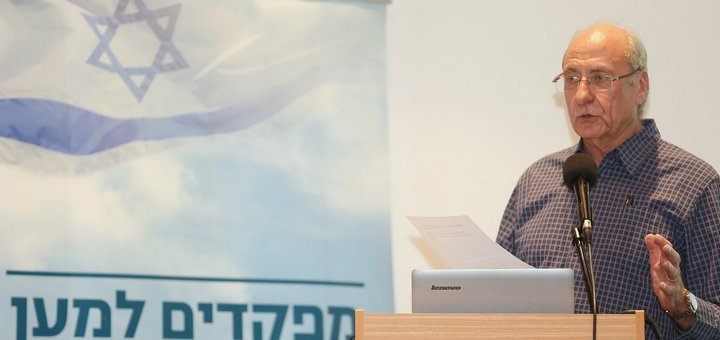
"This is a national emergency situation," said Maj. Gen. (Res.) Amnon Reshef, founder of Commanders for Israel’s Security. "The upcoming elections are crucial to the fate and future of Israel. It is up to us to alert the public to the security cross-road; to inform the public discourse; and to encourage politicians to commit to post-election launch of an Israeli initiative aimed at enhancing regional security while resolving our conflict with the Palestinians”. Referring to the collective muscle of his new movement, Reshef added:
“With more than 4500 years of security experience present in this room, no one should presume to educate us on what is good for the security of our country. Those who claim that regional security-political arrangements and peace with the Palestinians will undermine security are flat wrong. We know that peace agreements with the Palestinians and our Arab neighbors are critical to the security of Israel and that Israel's security forces have the power to secure borders as shall be agreed upon through negotiations and endorsed by the Israeli public."
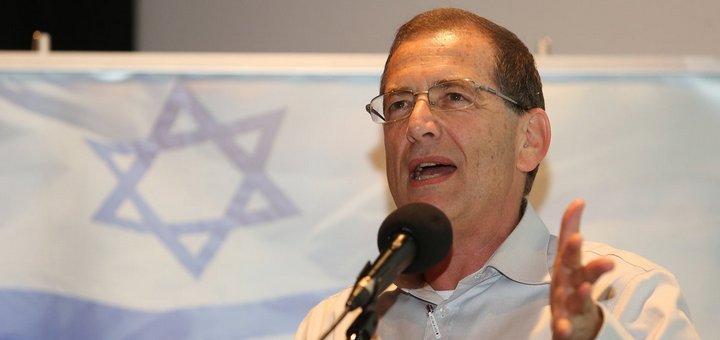
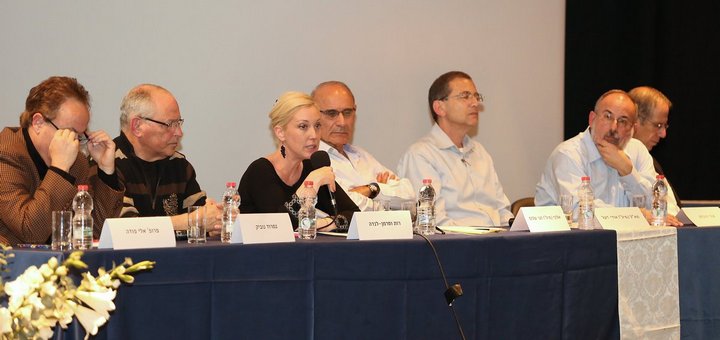
The Commanders for Israel’s Security grew out of a widely publicized letter to Prime Minister Binyamin Netanyahu initiated by Reshef and signed by 103 security veterans from the rank of Brigadier General and Major General, as well as former directors of Mossad and former Israel National Police Commissioners.
The letter called upon Netanyahu to respond to the Arab Peace Initiative by launching an Israeli initiative, and promised the Prime Minister the support of the signatories should he do so. The letter sparked the immediate interest of Israeli politicians, foreign diplomats and even Jordanian, Egyptian and other regional security officials. Since then, another 50 former generals have joined the movement, with more signing up each day.
The success of the launch attests to the growing interest among security and political circles, and the public at large, to embrace this important effort as it works to impact the election conversation, to change the national agenda and to raise critical awareness among the general public.
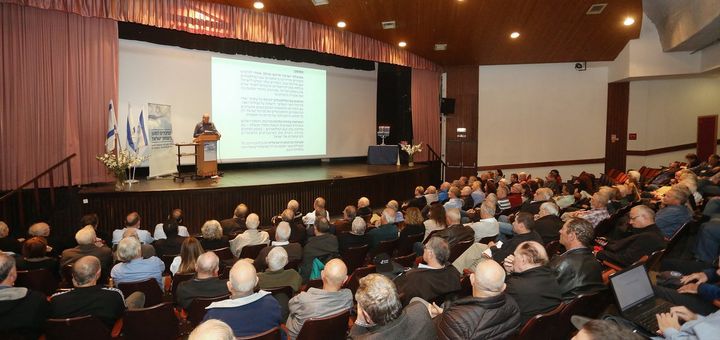
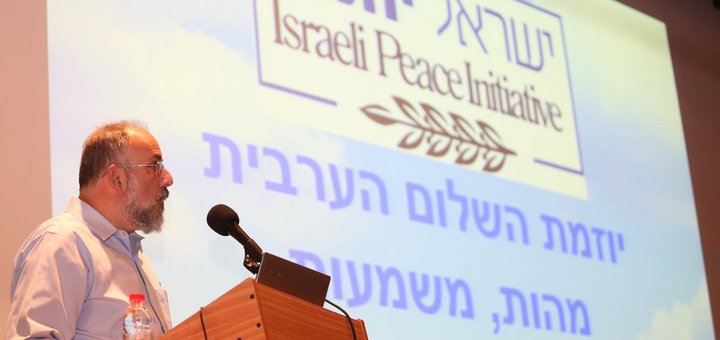
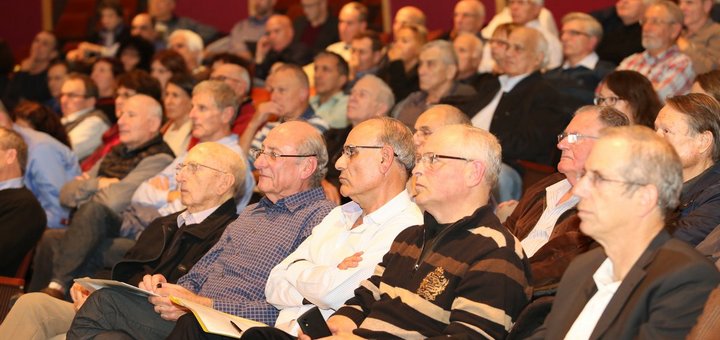
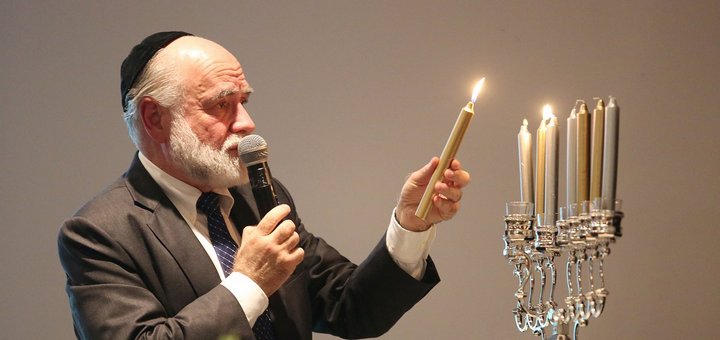
Former Mossad chief: For the first time, I fear for the future of Zionism
The nation of Israel is galloping blindly toward Bar Kochba's war on the Roman Empire. The result of that conflict was 2,000 years of exile
By Shabtai Shavit | Nov. 24, 2014 | Haaretz
From the beginning of Zionism in the late 19th century, the Jewish nation in the Land of Israel has been growing stronger in terms of demography and territory, despite the ongoing conflict with the Palestinians. We have succeeded in doing so because we have acted with wisdom and stratagem rather than engaging in a foolish attempt to convince our foes that we were in the right.
Today, for the first time since I began forming my own opinions, I am truly concerned about the future of the Zionist project.
I am concerned about the critical mass of the threats against us on the one hand, and the government’s blindness and political and strategic paralysis on the other. Although the State of Israel is dependent upon the United States, the relationship between the two countries has reached an unprecedented low point. Europe, our biggest market, has grown tired of us and is heading toward imposing sanctions on us. For China, Israel is an attractive high-tech project, and we are selling them our national assets for the sake of profit. Russia is gradually turning against us and supporting and assisting our enemies.
Anti-Semitism and hatred of Israel have reached dimensions unknown since before World War II. Our public diplomacy and public relations have failed dismally, while those of the Palestinians have garnered many important accomplishments in the world. University campuses in the West, particularly in the U.S., are hothouses for the future leadership of their countries. We are losing the fight for support for Israel in the academic world. An increasing number of Jewish students are turning away from Israel. The global BDS movement (boycott, divestment, sanctions) against Israel, which works for Israel’s delegitimization, has grown, and quite a few Jews are members.
In this age of asymmetrical warfare we are not using all our force, and this has a detrimental effect on our deterrent power.
The debate over the price of Milky pudding snacks and its centrality in public discourse demonstrate an erosion of the solidarity that is a necessary condition for our continued existence here. Israelis’ rush to acquire a foreign passport, based as it is on the yearning for foreign citizenship, indicates that people’s feeling of security has begun to crack.
I am concerned that for the first time, I am seeing haughtiness and arrogance, together with more than a bit of the messianic thinking that rushes to turn the conflict into a holy war. If this has been, so far, a local political conflict that two small nations have been waging over a small and defined piece of territory, major forces in the religious Zionist movement are foolishly doing everything they can to turn it into the most horrific of wars, in which the entire Muslim world will stand against us.
I also see, to the same extent, detachment and lack of understanding of international processes and their significance for us. This right wing, in its blindness and stupidity, is pushing the nation of Israel into the dishonorable position of “the nation shall dwell alone and not be reckoned among the nations” (Numbers 23:9).
I am concerned because I see history repeating itself.
The nation of Israel is galloping blindly in a time tunnel to the age of Bar Kochba and his war on the Roman Empire. The result of that conflict was several centuries of national existence in the Land of Israel followed by 2,000 years of exile.
I am concerned because as I understand matters, exile is truly frightening only to the state’s secular sector, whose world view is located on the political center and left. That is the sane and liberal sector that knows that for it, exile symbolizes the destruction of the Jewish people. The Haredi sector lives in Israel only for reasons of convenience. In terms of territory, Israel and Brooklyn are the same to them; they will continue living as Jews in exile, and wait patiently for the arrival of the Messiah.
The religious Zionist movement, by comparison, believes the Jews are “God’s chosen.” This movement, which sanctifies territory beyond any other value, is prepared to sacrifice everything, even at the price of failure and danger to the Third Commonwealth. If destruction should take place, they will explain it in terms of faith, saying that we failed because “We sinned against God.” Therefore, they will say, it is not the end of the world. We will go into exile, preserve our Judaism and wait patiently for the next opportunity.
I recall Menachem Begin, one of the fathers of the vision of Greater Israel.
He fought all his life for the fulfillment of that dream. And then, when the gate opened for peace with Egypt, the greatest of our enemies, he gave up Sinai – Egyptian territory three times larger than Israel’s territory inside the Green Line – for the sake of peace. In other words, some values are more sacred than land. Peace, which is the life and soul of true democracy, is more important than land.
I am concerned that large segments of the nation of Israel have forgotten, or put aside, the original vision of Zionism: to establish a Jewish and democratic state for the Jewish people in the Land of Israel. No borders were defined in that vision, and the current defiant policy is working against it.
What can and ought to be done?
We need to create an Archimedean lever that will stop the current deterioration and reverse today’s reality at once. I propose creating that lever by using the Arab League’s proposal from 2002, which was partly created by Saudi Arabia. The government must make a decision that the proposal will be the basis of talks with the moderate Arab states, led by Saudi Arabia and Egypt.
The government should do three things as preparation for this announcement:
- It should define a future negotiating strategy for itself, together with its position on each of the topics included in the Arab League’s proposal.
- It should open a secret channel of dialogue with the United States to examine the idea, and agree in advance concerning our red lines and about the input that the U.S. will be willing to invest in such a process.
- It should open a secret American-Israeli channel of dialogue with Saudi Arabia in order to reach agreements with it in advance on the boundaries of the topics that will be raised in the talks and coordinate expectations. Once the secret processes are completed, Israel will announce publicly that it is willing to begin talks on the basis of the Arab League’s document.
I have no doubt that the United States and Saudi Arabia, each for its own reasons, will respond positively to the Israeli initiative, and the initiative will be the lever that leads to a dramatic change in the situation.
With all the criticism I have for the Oslo process, it cannot be denied that for the first time in the conflict’s history, immediately after the Oslo Accords were signed, almost every Arab country started talking with us, opened its gates to us and began engaging in unprecedented cooperative ventures in economic and other fields.
Although I am not so naïve as to think that such a process will bring the longed-for peace, I am certain that this kind of process, long and fatiguing as it will be, could yield confidence-building measures at first and, later on, security agreements that both sides in the conflict will be willing to live with.
The progress of the talks will, of course, be conditional upon calm in the security sphere, which both sides will be committed to maintaining. It may happen that as things progress, both sides will agree to look into mutual compromises that will promote the idea of coexisting alongside one another. If mutual trust should develop – and the chances of that happening under American and Saudi Arabian auspices are fairly high – it will be possible to begin talks for the conflict’s full resolution as well.
An initiative of this kind requires true and courageous leadership, which is hard to identify at the moment. But if the prime minister should internalize the severity of the mass of threats against us at this time, the folly of the current policy, the fact that this policy’s creators are significant elements in the religious Zionist movement and on the far right, and its devastating results – up to the destruction of the Zionist vision – then perhaps he will find the courage and determination to carry out the proposed action.
I wrote the above statements because I feel that I owe them to my parents, who devoted their lives to the fulfillment of Zionism; to my children, my grandchildren and to the nation of Israel, which I served for decades.
The author is a former director general of the Mossad.




